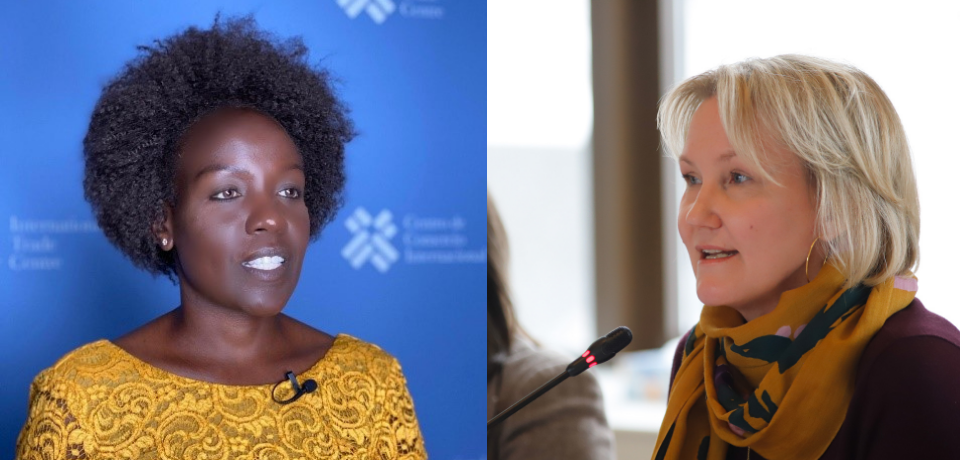Author: Antonio Zappulla
BiographyAntonio Zappulla
Antonio Zappulla is CEO of the Thomson Reuters Foundation, the corporate foundation of the global news and information services company. Through news, media development, free legal assistance and convening initiatives, the Thomson Reuters Foundation combines its unique services to advance media freedom, raise awareness of human rights issues, and foster more inclusive economies.
Antonio is the founder of Openly, the world’s first platform dedicated to fair, accurate and
impartial coverage of LGBT+ stories with global distribution through the Reuters wire. In 2018, he ranked first in the OUTstanding list of third sector LGBT+ executives published by the Financial Times. In 2017, he was named a European Young Leader by Friends of Europe and was awarded the Talented Young Italians Award by Italian Chamber of Commerce in 2016.
Antonio is a One Young World Ambassador and a World Economic Forum agenda contributor. He sits on the boards of Open for Business and the International News Safety Institute (INSI) and is a member of the Steering Committee of the Reuters Institute for the Study of Journalism at the University of Oxford.

The dangers of conspiracy theories, propaganda, and media extinction put societies at risk but pluralism is still the best antidote to the pandemic.
The Covid-19 crisis is much more than a global health emergency. What began as an epidemic has led to what the World Health Organisation has dubbed an ‘infodemic’, an onslaught of inaccurate information endangering the global response to the crisis.
From claims that garlic and sesame oil can prevent the disease, through to theories that the pandemic was caused by China’s secret biological weapons programme, rumour, conspiracy theories and disinformation are spreading as fast as the pandemic. These are dangerous and volatile waters.
In addressing the immediate threat to life and the imminent economic collapse, the world is fighting one common challenge. But instead of inviting a united response and a plurality of voices, the conversation has become dangerously divisive. The gravest health crisis affecting humanity in recent times has been hijacked by extremist groups, polarising people all over the world, and suppressing respect for and the voices of diverse communities.
The exploitation of crises is not new to those who wish to harness it for their own political or ideological narratives. But unique to Covid-19 is its global impact and the sheer scale of uncertainty, trauma, mistrust and fear. It’s a perfect storm of toxicity: a single moment in time where – across the world – personal interactions have been drastically reduced as people increase their digital consumption. As a result, even intervention from international fact-checking organisations, independent media outlets, and Big Tech companies is a drop in the ocean to countering the onslaught of misinformation. A recent study by Aavaz found, for example, that despite Facebook’s attempts to counter misinformation on the coronavirus, millions of users are still accessing harmful content.
You have only to look at the explosion of extremist propaganda over the past few months in the US, Europe and Africa, in which minority groups are being scapegoated for the spread of the virus. From allegations by far-right groups that non-white immigrants are spreading the disease, to anti-Semitic messaging accusing Bill Gates and George Soros for masterminding the disaster, to State-sponsored conspiracy theories – the numbers of users engaging with this content are on the rise.
According to Moonshot, a tech start-up working to counter violent extremism, the impact of social distancing as a result of the pandemic has sparked a 21% increase in online engagement with violent extremist content in the US. Watchdogs warn white supremacists and neo-Nazi groups in the US are recruiting on the back of the pandemic. More worrying still, counter-extremism think-tank Institute of Strategic Dialogue has found far-right groups in the US are using the pandemic to actively call for extreme violence, resulting in incidents such as the attempted terrorism attack on a Missouri hospital which was later linked to this messaging.
And it’s not just happening in the US. European Union Counter-Terrorism Coordinator Gilles de Kerchove has warned the pandemic is fuelling hate against Jews, Muslims and migrants, thanks to a surge of fake news and calls to mobilise against these minority groups on messaging apps and extremist sites.
The power of harmful propaganda is also evident through the mobilisation of the ‘anti-vaccine’ movement, particularly in the US, but also in France and Italy. These voices are ostensibly protesting at mandatory vaccination programmes but more widely against perceived erosion of civil liberties and state control. At a time when the world’s scientists are scrambling to develop a vaccine, a growing proportion of the population who refuse to receive it – increasingly a politically divisive issue – could seriously endanger efforts towards providing collective immunity and curbing the pandemic. The impact on global health could be catastrophic – as the World Health Organisation warned back in 2019 before Coronavirus even took hold.
This deepening of societal divides is weakening the world’s defences against the pandemic. A global threat demands a global response. But for this, we need a free flow of fair, accurate and unbiased information, and the willingness from governments to act as the people’s representatives, able to share learnings, collaborate, engage with civil society organizations, and ensure that a plurality of voices are heard – from entrepreneurs to migrants, from teachers to religious minorities.
A free, diverse and thriving news media industry plays a critical role in setting the right conditions for multiple voices across society to be heard, at national and local levels. Covid-19 is seriously undermining this, too.
The Reuters Institute for the Study of Journalism, funded by the Thomson Reuters Foundation, predicts local news outlets will be hit hard as a result of the pandemic. Philanthropic organisation Luminate goes further. It bleakly forecasts that lack of revenue from advertising could soon lead to a media ‘extinction event’, with catastrophic repercussions for those who arguably need access to trusted information most.
Those hit hardest will inevitably be in countries where resources are most scarce and the economic downturn most severe. Countries in North Africa, for instance, have seen some publications suspended due to an inability to distribute newspapers and magazines during the lockdown, as well as health fears over risks associated with handling the paper.
But protecting these critical conduits of information to the local community are key to representing a diversity of voices, empowering minority groups and dismantling prejudice. Traditional media business models may be up-ended, but trust in major news outlets to deliver information in a time of crisis remains strong – as Edelman’s Covid-19 Trust Barometer reports.
This is why protecting the future of journalism is core to the work of the Thomson Reuters Foundation – and most recently – to its response to the pandemic. Our Covid-19 Crisis Reporting Hub equips journalists in countries where the virus is likely to wreak most devastation, with the core skills they need to report on the pandemic – and offer vital unbiased and critical information in a language their communities will understand.
Building a more robust and better-equipped journalism ecosystem, where independent reporting can counteract misinformation and disinformation is vital to emerging with stronger, more inclusive societies in a post-Covid world.



